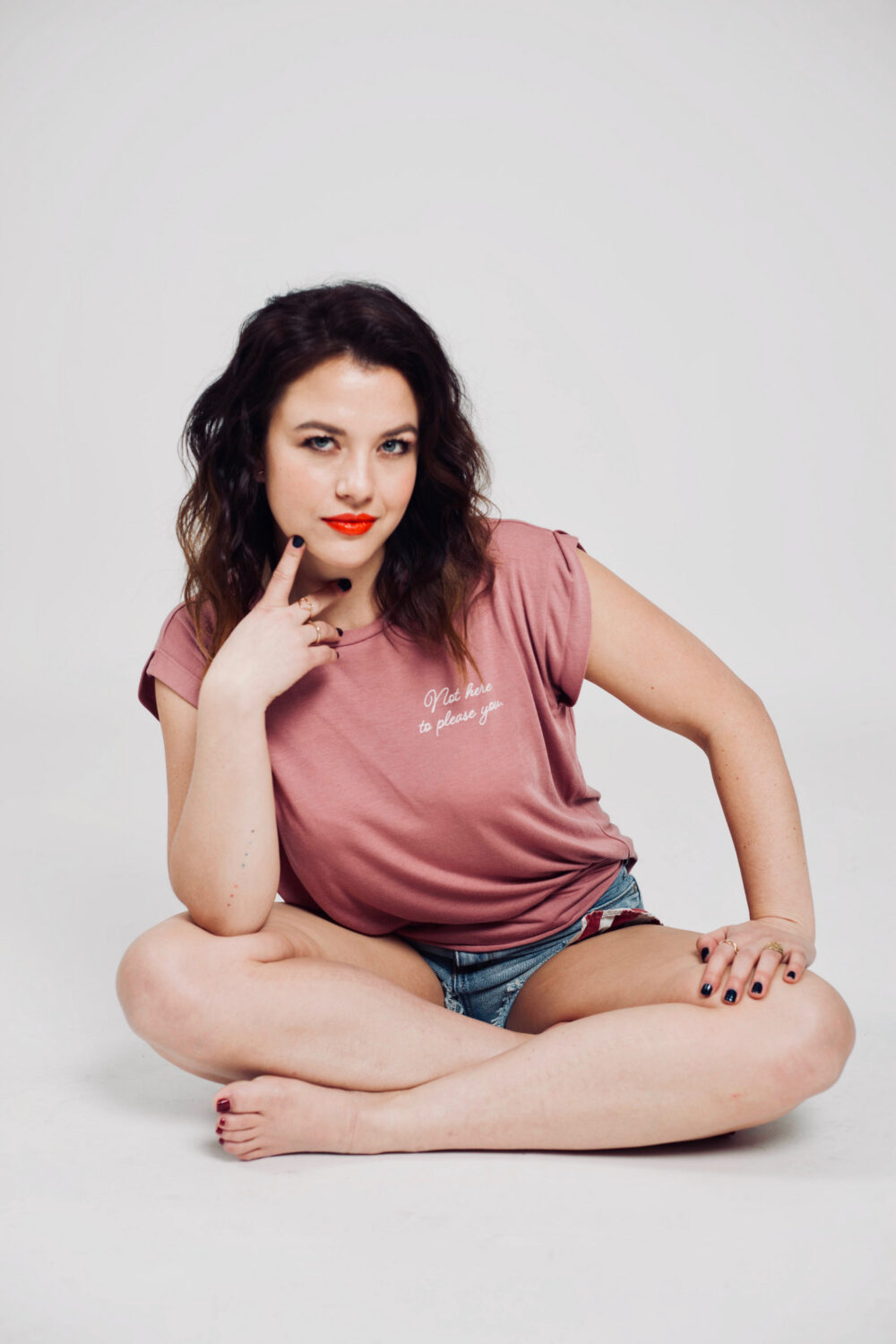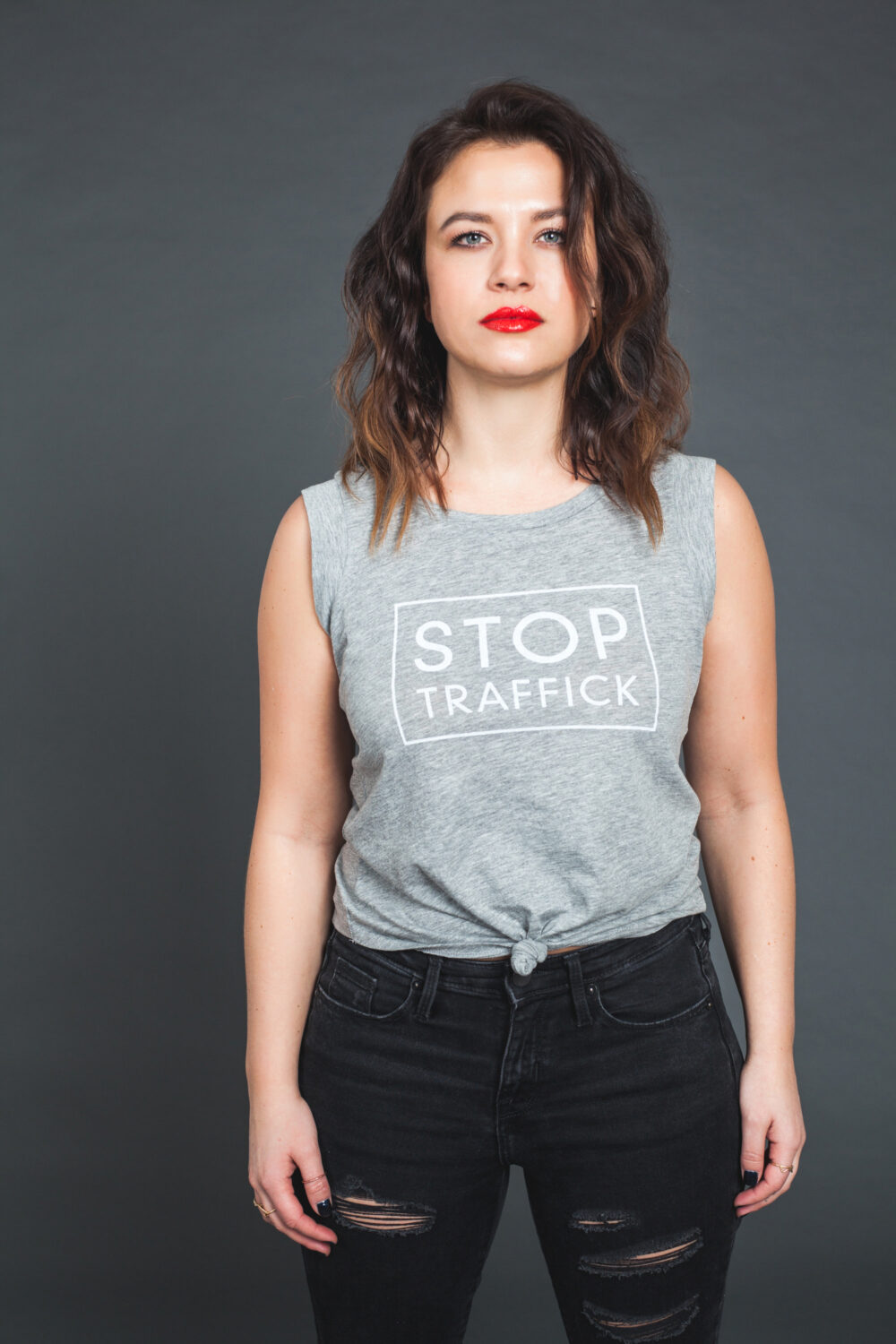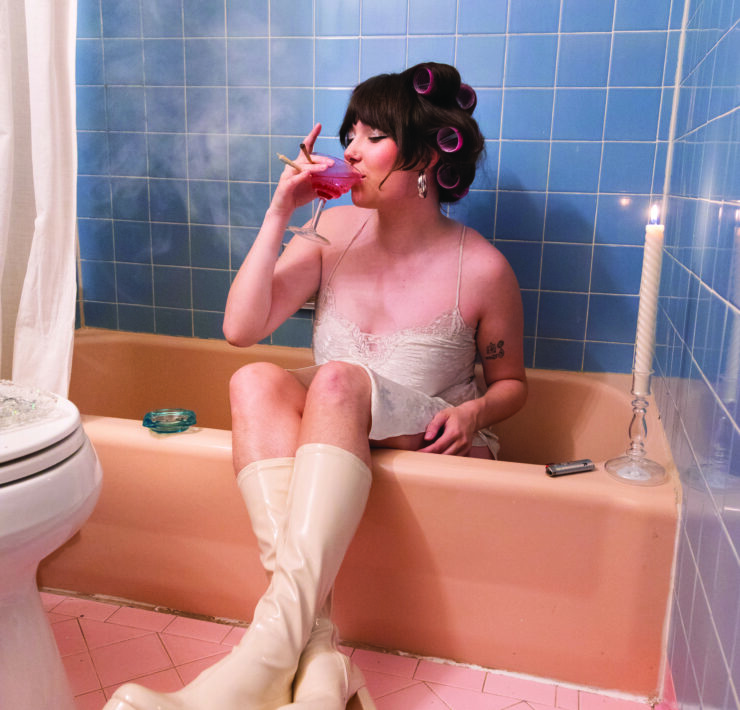Jessie Standafer Loves Women and Cannabis

When it comes to the representation of queer women in media, we don’t get a whole lot of positivity. Queer women dying as a tragic plot point has become a huge trope in media, and music in general still hasn’t seen a ton of positive representation.
Jessie Standafer is looking to change that with her music. She’s all about bringing positivity and queer joy through her fun, pop bops.

Standafer has music in her blood—both her parents and grandparents are musicians, and she was raised on classical music and jazz. She started writing music about five years ago, and it became a transitional moment in her life as she grew more secure in her identity and coming out.
Despite her strict Christian upbringing, Standafer leaned into pop. The repetitiveness and catchy beats remind her of religious chanting, and she wanted to use them as a “modern-day mantra” to get positive and revolutionary ideas out there.
“Progress should be trendy. In a capitalist society, trendy works,” Standafer told OUT FRONT. “I want to get these messages stuck in people’s heads.”
Standafer considers herself to be a musical activist. She wants her music to be political and have a message, despite its fun aesthetic. Storytelling and using multiple perspectives is key for this.
“It’s about recognizing a global perspective. There’s power in tying things into a larger narrative, and it’s important to include other marginalized voices in these narratives,” she said.
She got into activism because she has always had a tendency to look at the bigger picture. Standafer is always looking out for opportunities to help her grow. Once she started creating music, she wanted to incorporate it into her activism, so she decided to experiment and see if pop music could be revolutionary. Now, pop is Standafer’s weapon for change.

We’re at an interesting moment in pop music when it comes to queer women in the industry. Artists like Halsey and Hayley Kiyoko are incredibly prominent, have come out as queer, and released openly queer music and videos in the past couple of years. According to Standafer, we’re, “at a crossroads where queerness is celebrated, but there’s still very real homophobia in the industry.”
She still has people complain because she’s “always talking about gay stuff.” She also experiences a lot of homophobia because she’s femme-presenting. For queer pop musicians to continuing thriving and progressing in the industry, Standafer says they need to be careful and look out for each other, since the industry’s acceptance isn’t always as deep as it should be.
“There’s an idea with Halsey that now we ‘have our queer pop star, so we’re good,’ but how many straight pop stars are there?” she complained. As in many other forms of media, the music industry wants to lean towards a one-and-done approach when it comes to queer pop musicians. Standafer is adamantly against that.
Her debut EP, Rise Up, is all of these passions and ideas mashed up. The title track is a revolutionary anthem, while other songs, like “Get Down,” are more centered around queer joy and being out. As someone who doesn’t come from a supportive family, Standafer really wanted to have a song celebrating chosen family. Lesbian culture, when represented, also tends to be angsty, so Standafer wanted to make something fun and flirty instead.
As dire as things have become in this political climate, finding queer music that still inspires hope is not only refreshing, but necessary. As Standafer said, “marginalized people need to lift each other up.” We don’t have much to celebrate now, but we do have our communities, our chosen families, and artists like Standafer who can represent us, and remind us of the good that’s still in the world.
Oops! This article originally referred to Halsey as lesbian rather than bisexual. Standafer retracts her quote and OUT FRONT apologizes.










